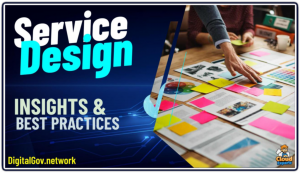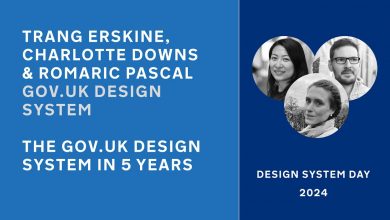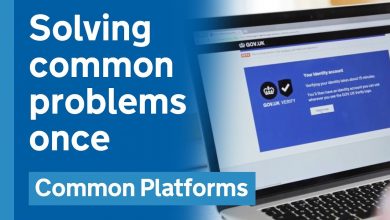Using the GOV. UK Prototype Kit: Empowering Inclusive Digital Service Design.
A workshop from Vicky Teinaki in how to design, code and optimise prototypes using the GDS toolkit developed to test interactive prototypes of government services.
 The Gov.uk Prototype Kit, developed by the UK Government Digital Service (GDS), is a powerful tool designed to help teams rapidly create and test interactive prototypes of government services or web pages that align with the GOV.UK design system.
The Gov.uk Prototype Kit, developed by the UK Government Digital Service (GDS), is a powerful tool designed to help teams rapidly create and test interactive prototypes of government services or web pages that align with the GOV.UK design system.
It enables designers, developers, and user researchers to build realistic, testable versions of digital services without requiring extensive coding from scratch.
By providing a framework that mirrors the look, feel, and accessibility standards of official GOV.UK services, the kit ensures prototypes are consistent with the government’s digital guidelines, making it an essential resource for creating user-centered designs.
The kit is tailored for rapid prototyping, allowing teams to produce working HTML prototypes in minutes, which can then be tested with users or presented to stakeholders for feedback. It is particularly valuable in agile workflows, where iterative design and early user testing are critical.
While it is user-friendly enough for those with minimal coding experience, developers can extend its functionality by adding custom HTML, CSS, or JavaScript to create more complex prototypes. The kit runs locally on a user’s computer using Node.js, eliminating the need for external hosting unless the prototype needs to be shared online, such as via platforms like Heroku.
At its core, the GOV.UK Prototype Kit leverages components from the GOV.UK Frontend, including buttons, forms, tables, and typography that adhere to the government’s visual and accessibility standards.
Nunjucks
It uses Nunjucks, a JavaScript templating engine, to enable dynamic content like conditional form logic or user-driven interactions. The kit also incorporates Sass/CSS for styling and Express.js to run a lightweight local web server. These features make it easy to simulate multi-step processes, such as applying for benefits or renewing licenses, while maintaining a professional and consistent appearance.
The tool is widely used across UK government departments, by designers and researchers testing usability, developers mocking up services before production, and third-party agencies working on government projects. It supports user research, stakeholder engagement, and service design by allowing teams to validate ideas early and iterate based on feedback.
The open-source nature of the kit, hosted on GitHub, ensures it benefits from community contributions and regular updates, which add new components or improve accessibility.




